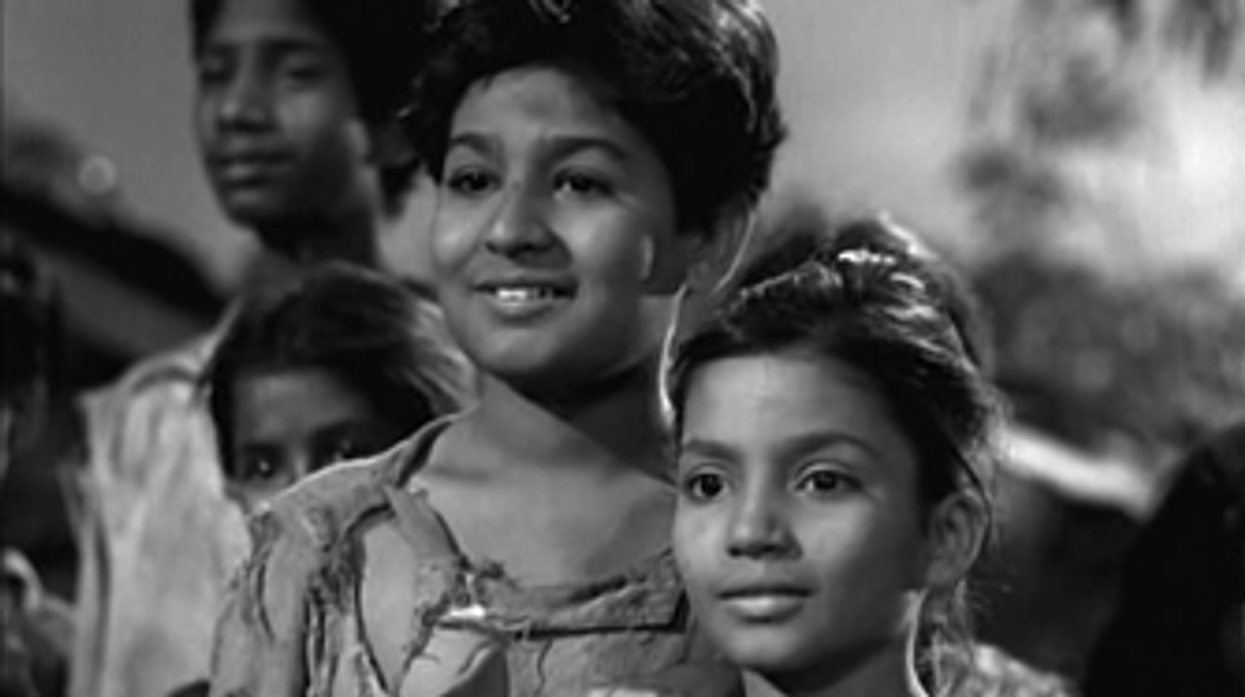ONE of the greatest Indian films that very few from the modern generation have seen is the 1954 classic Boot Polish.
The movie masterpiece, produced by Raj Kapoor, broke all the rules to become a huge international success and offered audiences something genuinely different. The emotional story of two orphans trying to survive the harsh realities of homelessness and their journey towards a brighter future received international acclaim, including a special mention at the Cannes Film Festival.
It also won best film at the Filmfare Awards after its release on August 20, 1954.
Eastern Eye marks the recent 70th anniversary of this extraordinary Bollywood movie you likely haven’t seen by revealing 10 reasons why it remains special after so many decades.
Story: The biggest hero of Boot Polish was the writing. Bhanu Pratap delivered a gripping storyline of two orphans, forced to fend for themselves in an unforgiving world, who try to make an honest living by shining shoes. The well-crafted tale takes audiences into the heart of darkness but then lifts them into the light with a wonderfully crafted ending. There are relatable human emotions, great life lessons, and important social commentary, which remain relevant today. Boot Polish showed that if the writing is strong enough, a movie doesn’t need big stars to be successful.
A poster from Boot PolishPerformances: There haven’t been many performances from young protagonists in a commercial Hindi film that can match the brilliance of child actors Ratan Kumar and Naaz. Their portrayals of two siblings trying to survive in cruel surroundings while holding onto their humanity struck a chord with audiences globally. Their innocence added honesty to the emotions onscreen, elevating the film further. Both received international acclaim, with Naaz earning a special mention at the Cannes Film Festival. David also delivers an award-nominated performance as the kind-hearted bootlegger.
Direction: Legendary filmmaker Raj Kapoor may have only been credited as the producer, but it is said that he ghost-directed large parts of the film. Prakash Arora, who had worked as Kapoor’s assistant in previous blockbusters, was officially credited as director. Whether it was one or both of them working together, the direction is flawless from start to finish. From the great pacing to the realistic storytelling inspired by Italian neo-realism and bringing out the best in the cast, everything about the filmmaking was spot-on.
Reality: By the 1950s, most Bollywood movies had a larger-than-life quality, but Boot Polish offered a grounded connection to reality, making it more relatable. It spotlighted poverty without the romanticism of commercial films, which portrayed impoverished characters living carefree lives. This realistic drama inspired other filmmakers to add authenticity to their stories, eventually contributing to the Hindi cinema art house movement. Its raw reality also helped it connect with international audiences.
A still from Boot PolishTimeless: Themes such as child poverty, homelessness, struggling to make an honest living, and the plight of orphans make this film timeless. The human emotions and the universal dream of a better tomorrow covered in the movie remain relatable even today. This shows how special this time-transcending treasure is.
Music: The songs, composed by music duo Shankar Jaikishan, perhaps don’t get the credit they deserve. The standout track, Nanhe Munne Bachche Teri Mutthi Mein Kya Hai, written by legendary lyricist Shailendra, was a huge hit. Sung by Mohammed Rafi and Asha Bhosle, the song became iconic. The other tracks blend seamlessly into the narrative, adding depth to the story.
Moments: The film is filled with memorable moments, from captivating set pieces like the climax to tearjerking scenes and inspiring dialogues about the value of hard work. These unforgettable scenes, built around emotions and key messages, are still impactful today. The songs are also beautifully picturised.
Ending: Boot Polish was inspired by the neo-realism of Italian cinema, which was taking global cinema by storm, but the huge difference was the ending. Whilst Italian cinema took a deep dive into darkness, Boot Polish offered rays of hope, culminating in a feel-good ending that resonated deeply with audiences. The finale tied in with the children’s journey and gave the film great repeat value.
A still from Boot PolishPath breaker: From its storytelling and unique protagonists to its international success, Boot Polish was a path-breaking film for Bollywood. It helped Indian cinema gain global recognition, becoming the first commercial Hindi film to achieve wide distribution in America. Its achievements gave Indian filmmakers the courage to try new things and expand creatively.
Life-affirming: While some may view it as a tearjerker, Boot Polish is ultimately life-affirming. Decades before Slumdog Millionaire, this film told the story of street orphans overcoming adversity while holding onto their humanity. It shows that kindness can exist in a cruel world and that challenges can be overcome. By illustrating the value of perseverance, Boot Polish has inspired generations and remains a cinematic masterpiece.




